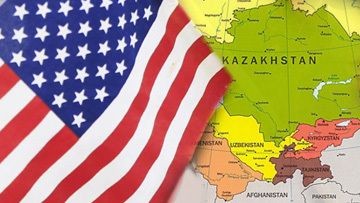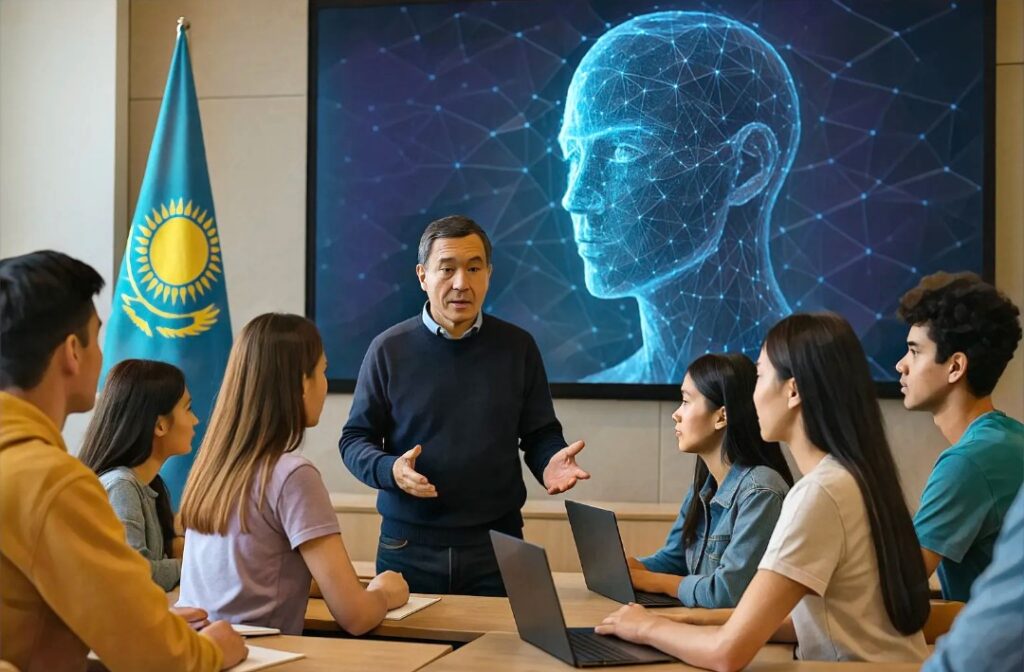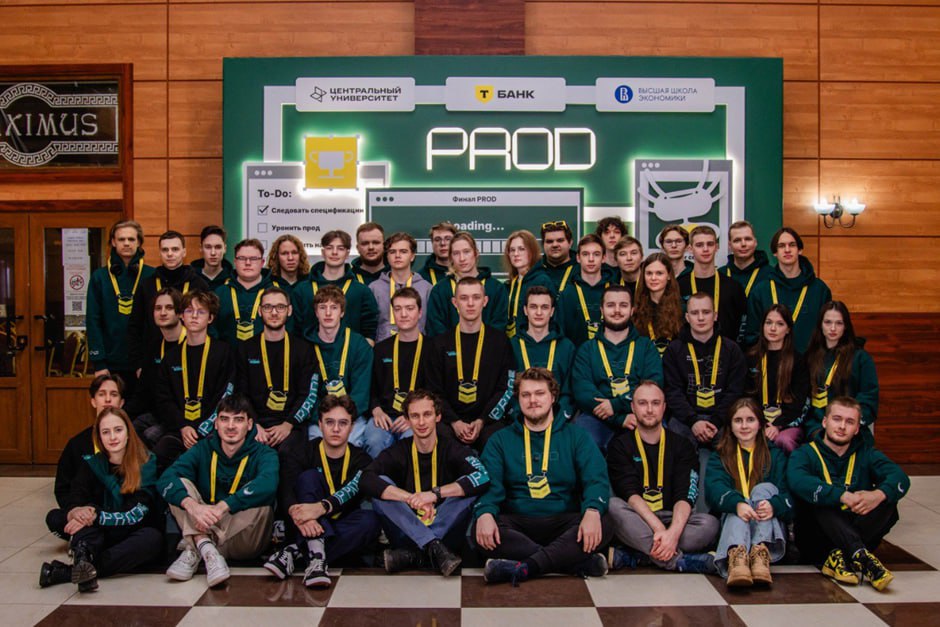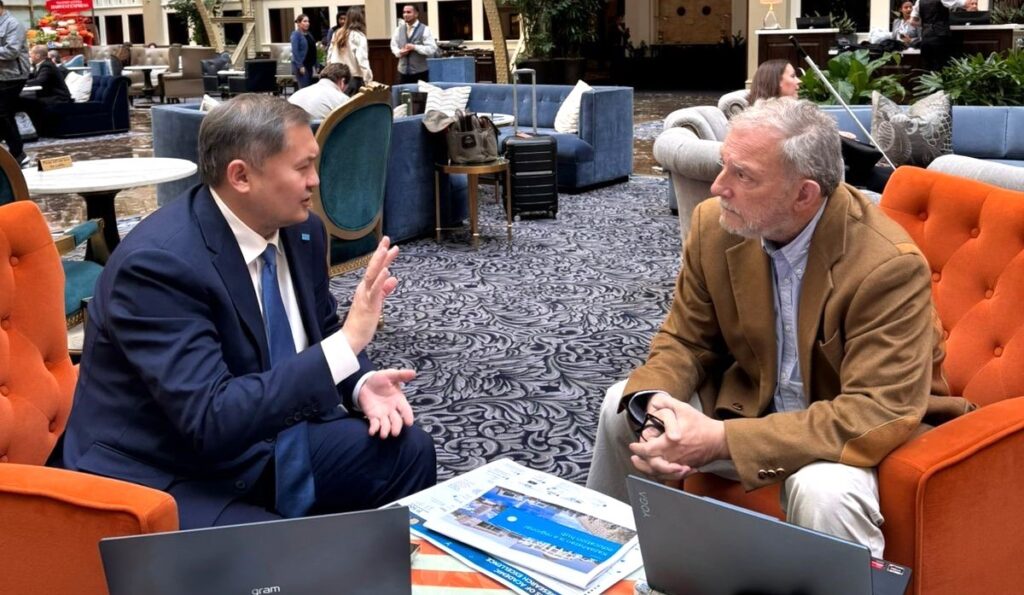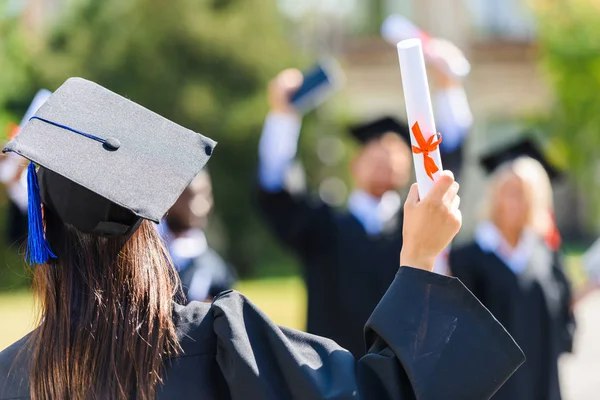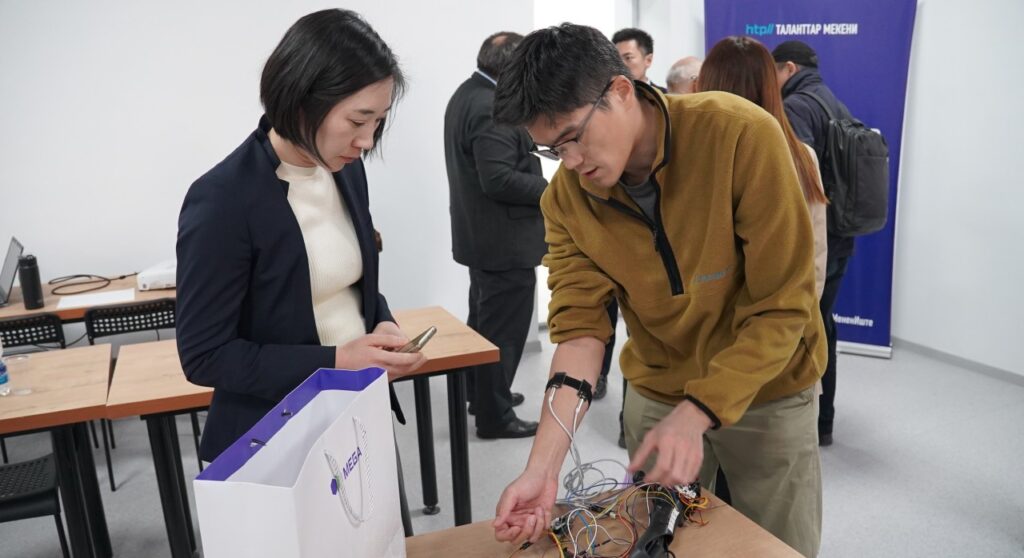ALMATY (TCA) — American Space Almaty, an initiative of the U.S. Mission in Kazakhstan, organized the first ever Maker Faire in Central Asia on April 14. U.S. Ambassador George Krol opened the festival with welcome remarks.
A Maker Faire is a large-scale, hands-on “show-and-tell” that showcases innovation, creativity and experimentation. The first Maker Faire was held in 2006 in California and, since then, 44 cities around the world, including Seoul, Moscow, and Delhi, have organized such Faires.
Almaty Mini Maker Faire 2018 is an all-day festival that gathers “makers” from five Central Asian countries and Afghanistan. It aims to encourage innovation and entrepreneurship, to stimulate collaboration in education, and to inspire engineers, computer scientists and artists to develop and implement creative ideas to solve today’s and tomorrow’s problems.
Guest speakers from the United States spoke at the event, focusing on education and its importance. Matthew Klein, of the online educational platform Coursera, introduced online learning as the new paradigm for 21st century education. Sarah Clatterbuck, a representative of Technovation, addressed the contributions of women and girls in finding technology-based solutions to the world’s problems. /Flash, the Almaty girls team that beat out over 160 teams from around the world to win Technovation’s Global Pitch Challenge in 2017, launched their winning application “QamCare” at the Faire. Qamcare is a mobile app designed to keep teens safe when walking alone.
Exhibitors presented more than 60 projects ranging from robotics and rockets to Tesla coils and electronic textiles. An additional 20 presenters introduced educational apps, entrepreneurship possibilities and intellectual property rights, while trainers offered workshops on coding, soldering, woodworking, and alternative energy. Siemens offered short virtual reality experiences showcasing future energy to visitors throughout the day. A Maker Faire is unique in that it combines activities and ideas that otherwise would seem incongruent: coding with crafts, electronics with design, virtual reality with environmental issues, robotics with health, and mechanics with art.
Ambassador Krol stated: “I believe that this might be one of the greatest showcases of Central Asian creativity and inventiveness. From the mechanical snow leopard that greeted me at the entrance to the inventors that are joining us from Turkmenistan, Uzbekistan, Tajikistan, Kyrgyzstan, and throughout all of Kazakhstan, you are modeling a forward-thinking population that comes together to explore, collaborate and build. You are not only consuming information and not just using technology, you are creating new forms and new solutions to the problems that we are presented with today.”
A highlight of the Almaty Mini Maker Faire was the KZ Pitch Challenge competition that brought together twelve social entrepreneurs to battle for $2000 in micro-funding and a one month free membership to SmArt.Point’s co-working space. Mark Moody, the U.S. Consul General chaired a panel of judges, which included Alexei Li from Aviata, Amirkhan Omarov, CEO of SmArt.Point, Diana Tsoy from Technovation Kazakhstan, Aziza Utegenova from start-time.kz, and Aizhan Zhekeyeva from KazRobotics.
Almaty Mini Maker Faire was hosted and supported by SmArt.Point, in addition to being sponsored by Make: Magazine, U.S. Mission to Kazakhstan, Chevron, start-time.kz, Oyla, and The Steppe.
Almaty Mini Maker Faire is an independently organized event and is implemented under license from Maker Media Inc.
